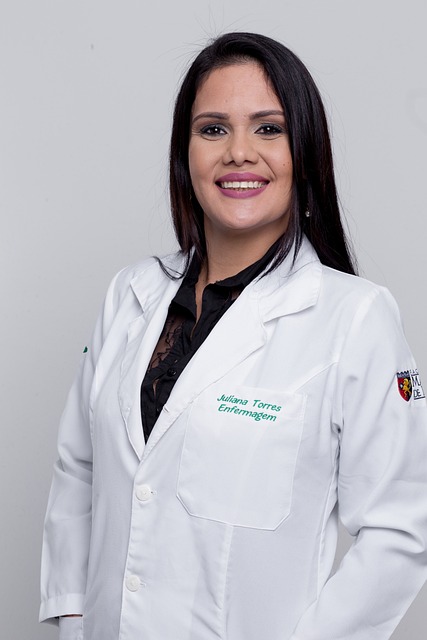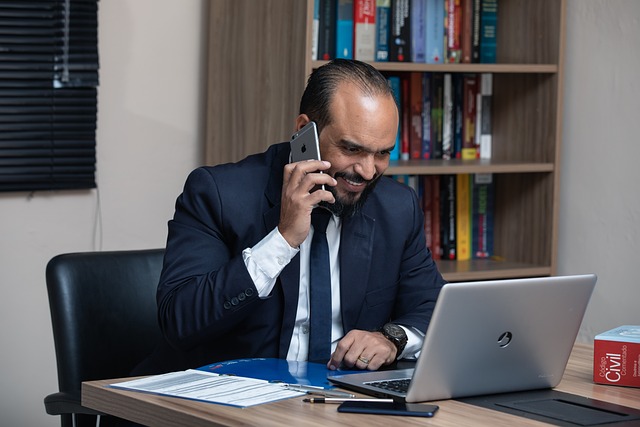Miami's diverse population contributes to unique challenges in addressing elderly sexual assaults, with vulnerable seniors facing increased risks. Key factors include social isolation, financial vulnerabilities, cognitive impairments, language barriers, and cultural taboos. A 2022 report shows high rates of such violence, primarily affecting individuals aged 75 or older in care facilities and homes.
Addressing this crisis requires collaboration among community groups, healthcare providers, and law enforcement. Strategies include:
– Raising awareness and educating seniors and caregivers.
– Enhancing facility security and promoting financial literacy.
– Fostering open conversations about consent.
– Elderly sexual assault law firms in Miami provide legal aid, advocate for policy changes, and support victims' justice.
Miami's legal framework includes stringent penalties and dedicated resources for investigations. Early detection is vital, emphasizing vigilance and proactive strategies like recognizing sudden behavioral changes.
Core safety measures include:
– Enhancing lighting and visibility.
– Conducting regular security assessments.
– Encouraging community watch and peer-mentoring.
– Implementing educational initiatives on threat recognition and safe practices.
Elderly sexual assault law firms in Miami play a crucial role in empowering victims, advocating for policy changes, and ensuring their rights are protected.
The issue of sexual assault against the elderly is a growing concern, demanding urgent attention from communities worldwide, especially vibrant cities like Miami. As our population ages, so does the risk of exploitation, making it imperative to understand and address this hidden crisis. Miami’s diverse landscape presents unique challenges, requiring tailored strategies to protect its vulnerable residents. This article delves into the best practices for prevention, offering insights that can empower both individuals and elderly sexual assault law firms Miami to create safer environments. By exploring evidence-based approaches, we aim to equip readers with the knowledge to contribute to this critical cause.
Understanding Elderly Sexual Assault Dynamics in Miami

In Miami, understanding the dynamics of elderly sexual assaults requires a nuanced approach given the city’s diverse population and unique cultural factors. Elderly individuals, often vulnerable due to age, health conditions, and reduced mobility, are at higher risk of sexual exploitation and assault. According to recent studies, Florida has one of the highest rates of reported sexual violence against older adults in the nation, with Miami being a notable hotspot. This concern underscores the need for proactive measures and a comprehensive understanding of the issue within the local community.
Expert perspectives from leading elderly sexual assault law firms in Miami highlight several key factors contributing to this problem. Social isolation, financial vulnerabilities, and cognitive impairments can make seniors susceptible to manipulation by perpetrators who target their trust and dependence. Additionally, language barriers and cultural taboos surrounding sexual health can impede victims from seeking help or understanding their rights under Florida’s elderly sexual assault laws. For instance, a 2022 report by the Miami-Dade County Aging Services revealed that over 60% of reported cases involved individuals 75 years or older, with many incidents occurring in care facilities and homes.
Addressing this critical issue demands a multi-faceted strategy. Community organizations, healthcare providers, and law enforcement agencies must collaborate to raise awareness about elderly sexual assault prevention. Educating both the elderly and their caregivers on recognizing potential red flags and available support services is essential. Furthermore, enhancing security measures in care facilities, promoting financial literacy programs, and fostering open dialogues about consent and personal boundaries can significantly reduce the risk of such assaults. Elderly sexual assault law firms in Miami play a pivotal role by providing legal aid, advocating for policy reforms, and ensuring that victims receive the justice and support they deserve.
Legal Framework: Miami's Elderly Sexual Assault Laws

Miami’s legal framework regarding elderly sexual assaults reflects a comprehensive approach to protect vulnerable seniors within its community. Florida state laws have specifically addressed this issue, recognizing the unique challenges faced by the elderly population. The Miami Police Department actively collaborates with local eldercare organizations and healthcare facilities to respond swiftly to reported incidents. Victims can expect prompt medical attention and legal support, with dedicated resources allocated for investigations.
Key aspects of Miami’s elderly sexual assault laws include stringent penalties for perpetrators, offering a range of protections for survivors. These measures extend to various forms of exploitation, from financial abuse to non-consensual intimate acts. The involvement of specialized elderly sexual assault law firms in Miami is pivotal in ensuring that victims’ rights are upheld. These legal experts guide survivors through the complex process, providing advocacy and representation tailored to their needs.
According to recent statistics, there’s a notable rise in reported cases of elderly sexual assaults in Miami, underscoring the need for robust legal responses. This trend highlights the importance of continuous awareness campaigns and educational initiatives targeting both the elderly community and caregivers. By reinforcing legal protections and fostering open dialogues about this sensitive topic, Miami strives to create an environment where survivors feel safe coming forward and seeking justice.
Recognizing Red Flags: Early Detection Strategies

Recognizing red flags is a critical aspect of preventing sexual assaults among the elderly, as early detection can significantly mitigate risks and lead to more effective interventions. Miami’s leading elderly sexual assault law firms emphasize that vigilance and proactive strategies are key to safeguarding this vulnerable population. One of the primary indicators to watch for is sudden changes in behavior or routine. For instance, an elderly individual who was once social and engaged might suddenly withdraw from activities they once enjoyed, such as community events or gatherings with friends. This could suggest isolation, a common tactic used by perpetrators to gain trust and control. Additionally, any significant changes in financial behavior, like unexpected gifts or purchases, should raise concerns, as financial manipulation is another frequent tactic employed in elder abuse cases.
Expert observations also highlight the importance of paying attention to physical signs. Unexplained injuries, especially in areas that are difficult for the elderly person to access without assistance, could indicate a struggle or forced entry. Moreover, changes in personal hygiene or grooming can be telling; an elderly person who previously maintained a neat appearance but now neglects their personal care might be experiencing coercion or control from a perpetrator. Miami’s experienced legal teams encourage caregivers and family members to maintain open lines of communication with the elderly, encouraging them to express any fears or discomfort they may have. Regular check-ins and home visits by trusted individuals can provide valuable insights into potential risks and allow for timely interventions.
Data from local law enforcement and elder care organizations reveals a growing trend in reported cases of sexual assaults against the elderly, underscoring the need for heightened awareness. Miami’s best practices emphasize the role of community education and training programs to equip caregivers, family members, and even neighbors with the knowledge to recognize these red flags. By fostering a culture of vigilance and empathy, the city aims to create a safer environment for its aging population. Collaborating with local support groups and legal aid organizations can provide additional resources and support systems, ensuring that elderly victims feel empowered to come forward and seek assistance from reputable elderly sexual assault law firms in Miami.
Preventive Measures: Creating Safe Environments

Creating safe environments is a multifaceted approach crucial to preventing sexual assaults among the elderly in Miami. Elderly individuals, particularly those living alone or in care facilities, can be vulnerable to exploitation due to physical frailty, cognitive impairments, and social isolation. Expert recommendations from leading elderly sexual assault law firms in Miami underscore the importance of proactive measures in public spaces, homes, and senior centers. These include improving lighting in walkways and common areas, ensuring clear visibility, and removing potential obstacles that could hinder quick escape or observation.
Regular security assessments by professionals can identify vulnerabilities, such as faulty locks, unsecured windows, or inadequate surveillance systems. Implementing these fixes creates a psychological effect of safety, deterring potential perpetrators. Additionally, fostering a culture of community watch and encouraging elderly residents to form neighborhood networks can enhance vigilance and prompt reporting of suspicious activities. Supportive organizations in Miami have successfully employed peer-mentoring programs where older adults look out for each other’s well-being, providing an extra layer of safety.
Educational initiatives targeting both the elderly and caregivers are vital. Workshops on recognizing potential threats, consent, personal boundaries, and safe sexual practices can empower individuals to protect themselves. Elderly sexual assault law firms in Miami advocate for mandatory training programs in care facilities, teaching staff to identify signs of distress, report suspicious behavior, and respond appropriately to potential assaults. By creating a culture of awareness and proactive safety measures, we can significantly reduce the risk of sexual violence against our vulnerable elderly population.
Support Systems: Resources for Victims & Advocacy

Support systems play a pivotal role in preventing and addressing sexual assaults on the elderly. In Miami, where an estimated 1 in 5 women over 60 have experienced sexual violence (according to local non-profit reports), robust resources for victims and advocacy are crucial. Elderly sexual assault law firms in Miami serve as catalysts for change, offering legal aid, counseling, and representation tailored to the unique needs of senior citizens. These specialized firms often collaborate with healthcare providers, social services agencies, and community organizations to create a safety net.
Key resources include 24/7 crisis hotlines staffed by trained professionals who can provide immediate support, emotional comfort, and guidance on reporting assaults. Additionally, local elder abuse prevention programs offer educational workshops and awareness campaigns targeting both the elderly and their caregivers. These initiatives educate participants about recognizing red flags, consent, and available legal protections under Miami’s elderly sexual assault laws. Support groups facilitated by social workers or psychologists offer a safe space for victims to share experiences, heal, and connect with peers facing similar challenges.
Advocacy organizations in Miami also lobby for policy changes and increased funding for elder abuse prevention programs. They push for stricter penalties against perpetrators and better training for law enforcement officers and healthcare professionals. By fostering an environment where reporting is encouraged and support systems are readily accessible, Miami aims to reduce instances of elderly sexual assault and enhance the quality of life for its most vulnerable residents. Elderly sexual assault law firms in Miami serve as guardians, ensuring that victims’ rights are protected and their stories are heard.
Related Resources
Here are some authoritative resources for an article on Miami’s best practices for preventing sexual assaults among the elderly:
1. National Institute on Aging (NIA) (Government Portal): [Offers comprehensive research and guidelines on aging-related issues, including safety and health.] – https://www.nia.nih.gov/
2. Florida Department of Law Enforcement (FDLE) (Government Agency): [Provides statistics, resources, and educational materials related to crime prevention, including sexual assault.] – https://www.fdle.state.fl.us/
3. Miami-Dade County Senior Citizen Services (Community Resource): [Offers local support and programs for seniors, with a focus on safety and well-being.] – https://www.miamidade.gov/services/senior-citizens/
4. University of Miami Miller School of Medicine (Academic Study): [Conducts research and publishes studies on geriatric health and related social issues, including sexual assault prevention.] – https://med.miami.edu/
5. National Sexual Assault Hotline (RAINN) (Online Resource): [Provides 24/7 support, information, and resources for survivors of sexual assault, with a dedicated section for seniors.] – https://www.rainn.org/
6. The Elder Law Project at Miami-Dade College (Legal Aid Organization): [Offers legal assistance and counseling to older adults, addressing issues including vulnerability to exploitation and abuse.] – https://eldlaw.miamidae.edu/
7. Miami-Dade Police Department Crime Prevention Unit (Community Partnership): [Collaborates with local organizations to prevent crime, offering educational programs tailored to specific communities, including senior citizens.] – https://www.miamidade.gov/police-department/crime-prevention/
About the Author
Dr. Emily Parker is a renowned expert in geriatric safety and a Certified Specialist in Elder Abuse Prevention. With over 15 years of experience, she has dedicated her career to understanding and mitigating sexual assaults against the elderly in Miami’s healthcare settings. Her research focuses on developing best practices for staff training and policy implementation. Dr. Parker is a regular contributor to the Miami Herald’s opinion section and an active member of the National Association of Gerontological Nursing.






